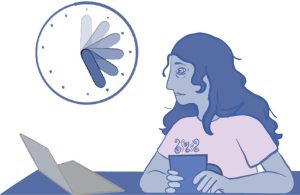[Opinion] The American government must decriminalize drugs in order to advance the growth of society
December 26, 2020

Over the course of the past 50 years, the American government has passed a variety of legislation that criminalizes drugs in an effort to stop their distribution, trade and recreational use. In doing so, our government has wrongfully targeted marginalized communities and has seemingly regarded substance abuse as a purely criminal issue, as opposed to a public health crisis.
The criminalization of drugs stems from the government-led initiative created by the Nixon administration to start the “war on drugs.” This initiative heavily criminalized the recreational use of marijuana and heroin, drugs used predominantly by the hippie community and Black community respectively.
This anti-drug campaign disproportionately affected people of color and resulted in the mass incarceration of Black and Latino Americans. According to Drugpolicy.org, a nonprofit organization dedicated to promoting new drug policies, approximately 80% of people currently in jail for a federal drug offense are Black or Latino. The same study revealed that in state prisons, people of color account for 60% of those serving time for drug offenses.
From a statistical perspective, it is clear that the criminalization of drugs targets people of color and disproportionately affects them in comparison to their white counterparts. This feeds into the racial disparity that exists within our criminal justice system and reaffirms the notion that systemic racism is prevalent in America.
For example, the NAACP states that Black Americans are four times more likely to be arrested for marijuana charges than their white counterparts. This is due to the racist undertones of the Nixon administration’s 1971 anti-drug campaign.
Another ramification of Nixon’s initiative is the influence it had over the Anti-Drug Abuse Act of 1986, which increased penalties for drug crimes while also creating a massive sentencing disparity between cocaine and crack.
These two substances are chemically identical. However, their differences lie in how they are ingested by the user and their production. Cocaine can be snorted, injected or swallowed. Meanwhile, crack cocaine can only be smoked.
In terms of production, crack is created by cooking pure cocaine with baking soda and breaking the cooked mixture into pieces referred to as rocks. Cocaine and crack are widely used; however, there is a disparity between crack usage and cocaine usage.
During the 1970s and 1980s, Black Americans used crack more than any other demographic, and the 1986 anti-drug law resulted in the amplification of racial disparity in incarceration by treating crack as a harsher substance than cocaine. According to a study conducted by New York University, crack users are at a higher risk for reporting multiple arrests or lifetime arrests in comparison to cocaine users.
Not only is the mass criminalization of drugs perpetuated by systemic racism, but it also incorrectly handles a current public health crisis in America: drug addiction.
According to the National Institute of Health, an estimated 65% of the American prison population has an active substance use disorder, and of that percentage, only 11% have received medical treatment for their condition. In order to rectify this situation, drug abusers should not be incarcerated for addiction or possession of illicit substances, and they should instead be entitled to treatment if necessary.
The war on drugs and the criminalization of drugs is an outdated agenda that must be reformed. America has progressed past the need to rely on the prison system as a way to control drug usage and its impact on communities.
This initiative has been targeting people of color since its conception and has been incorrectly handling substance abuse in America. If our nation expects to be devoid of prejudice, drug reliance and discrimination, then we must start by decriminalizing drugs, addressing the injustices that exist within the criminal justice system and acknowledging that addiction should be treated as an illness and not a criminal offense.
Drug usage and possession does not define an individual nor should it heavily impact the livelihood of a person. There are a multitude of societal factors that push an individual to become drug dependent like job loss or the collapse of a family structure. There is no correct way to handle the current health crisis that is drug addiction, but imprisoning addicts is certainly the wrong method.
The anxiety surrounding the decriminalization of drugs is reasonable as it begs the question: will drug addiction surge and does it increase the likelihood of teenagers gaining easier access to drugs?
These concerns are relevant however the movement to decriminalize drugs focuses on eliminating criminal penalties for drug use and possession, low-level drug sales and possession of equipment used to introduce drugs into the body. There is also no correlation between an increase in drug addiction and use among teenagers as shown by case studies.
For example, in 2001, Portugal decriminalized drug possession and following this decision drug use rates remained about the same according to Drugpolicy.org. Regardless of the legal status of drugs, people will find a way to access them.
Referencing the study mentioned previously, Portugal’s overdose rate and drug-related disease cases decreased following the decriminalization of drugs. This further proves that removing criminal penalties for drug use and possession is a plausible solution for this matter. The important issues here are to remove the stigma that surrounds addiction and to eliminate the racial disparity in the criminal justice system.
Drug criminalization is intrinsically harmful to American society, and the best way to combat it is to decriminalize illicit substances and work together to end drug abuse. Rehab centers and mental health resources should be made accessible to minimize the possibility of drug reliance growing in America.
If American politicians were to adopt drug policies that humanely tackle addiction, then society can collectively move in the right direction.
This story was originally published in the December 2020 Eagle Eye print edition.











